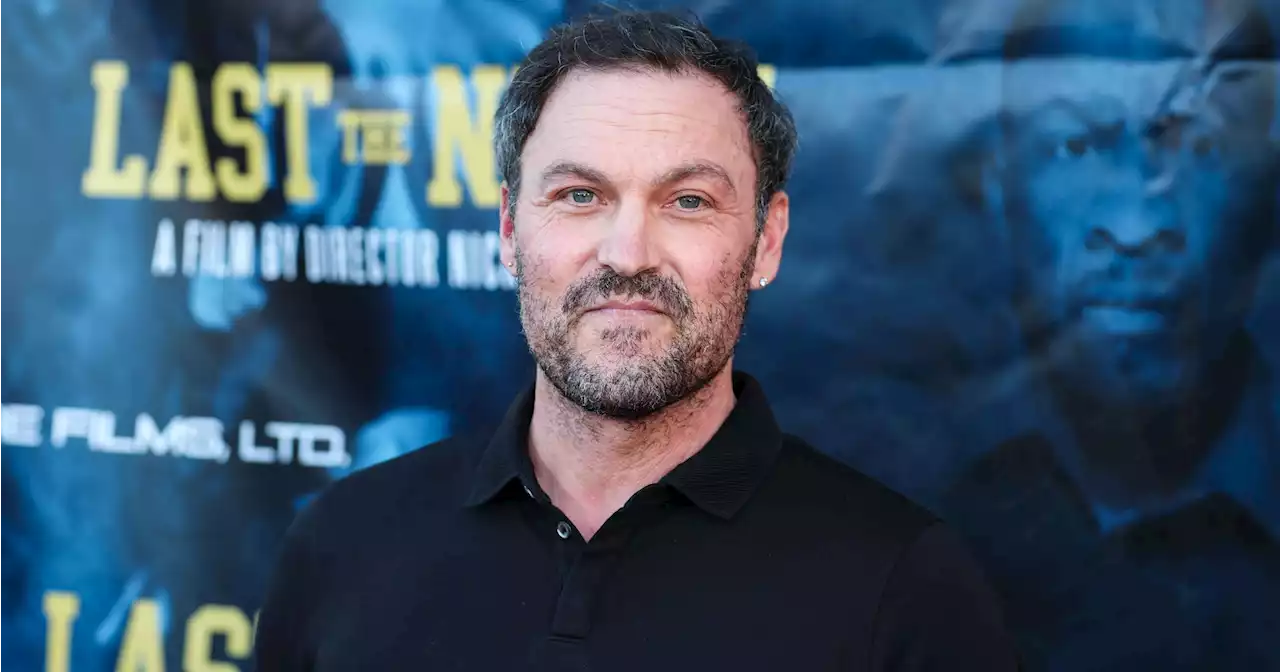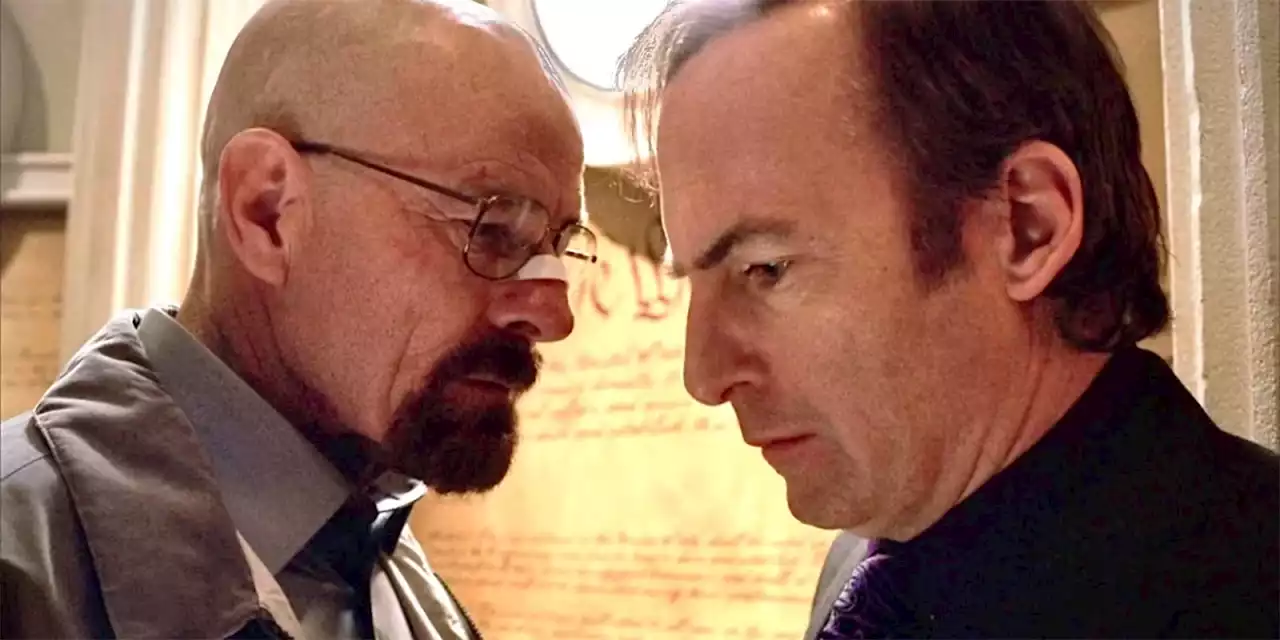Breaking Bad creator Vince Gilligan discusses why he’s no longer bothered by the debate over whether the spinoff Better Call Saul is a better show.
Breaking Bad creator Vince Gilligan addresses why he's no longer bothered by the debate over whether Better Call Saul is the better show. It's a debate that intensified following the conclusion of Better Call Saul late in 2022, as the prequel spinoff ended fundamentally differently than Breaking Bad which had a dramatic and high-octane finale.
SCREENRANT VIDEO OF THE DAY SCROLL TO CONTINUE WITH CONTENT Gilligan addressed the debate between Breaking Bad vs. Better Call Saul to the Los Angeles Times. Gilligan, who co-created the prequel spinoff with Peter Gould, mentioned how he's told by people that they're bigger fans of Better Call Saul than Breaking Bad. Even though Gilligan believed he'd hate hearing this, he explains why he doesn't.
“Half the people I run into — maybe more than half — are bigger fans of ‘Saul’ than ‘Breaking Bad. I thought I’d hate hearing that, but it turns out, I don’t. The life lesson is to not overthink things.” Breaking Bad & Better Call Saul Were Two Very Different Shows Although the two shows hail from the same creative minds, the spinoff had a different premise than the series it originated from. Breaking Bad was often very bombastic, particularly towards the end of its run, with shootouts and memorable action sequences. It dealt almost exclusively with the drug trade and featured some horrendous villains.
Entire sequences on Better Call Saul were sometimes spent detailing construction or the destruction of an area. It'd also spend episodes showcasing one of Jimmy's cons, patiently detailing how it all came together and, then, when the situation calls for it, showing how the con had terrible consequences. Both shows had excellent performances, writing, and direction.
United States Latest News, United States Headlines
Similar News:You can also read news stories similar to this one that we have collected from other news sources.
 ‘Breaking Bad’ actor Mike Batayeh’s final film ‘really hit my heart,’ director saysBatayeh’s final film role may be a surprising one — but the movie’s creator hopes it will have a lasting impact.
‘Breaking Bad’ actor Mike Batayeh’s final film ‘really hit my heart,’ director saysBatayeh’s final film role may be a surprising one — but the movie’s creator hopes it will have a lasting impact.
Read more »
 The Flash works hard to make us forget star Ezra Miller’s bad behaviorThe DC Extended Universe movie is a busy, smart-ass blur. TheFlashMovie TheFlash theflashreview dccomics MovieReviews film FilmTwitter
The Flash works hard to make us forget star Ezra Miller’s bad behaviorThe DC Extended Universe movie is a busy, smart-ass blur. TheFlashMovie TheFlash theflashreview dccomics MovieReviews film FilmTwitter
Read more »
 Return to High River: 10 years after the 2013 flood — 'Build it back better'Better than ever before: The town of High River has rebuilt, rebounding in every way in the 10 years since the devastating 2013 flood.
Return to High River: 10 years after the 2013 flood — 'Build it back better'Better than ever before: The town of High River has rebuilt, rebounding in every way in the 10 years since the devastating 2013 flood.
Read more »
 Opinion | Is a U.S. Wealth Tax Constitutional?From WSJopinion: The Justices have a chance in Moore v. U.S. to restore the proper constitutional understanding of the income tax and avoid a constitutional clash that could do substantial economic harm
Opinion | Is a U.S. Wealth Tax Constitutional?From WSJopinion: The Justices have a chance in Moore v. U.S. to restore the proper constitutional understanding of the income tax and avoid a constitutional clash that could do substantial economic harm
Read more »
 Brian Austin Green Denies He's a 'Bad Father' After Defending Ex Megan FoxBrian Austin Green and his ex-wife, Megan Fox, recently called out criticism about allegedly forcing their three kids to wear girls’ clothes — read more
Brian Austin Green Denies He's a 'Bad Father' After Defending Ex Megan FoxBrian Austin Green and his ex-wife, Megan Fox, recently called out criticism about allegedly forcing their three kids to wear girls’ clothes — read more
Read more »
 We Need Men to Be Better Allies SoonerResearch shows that men vastly overestimate their effectiveness as allies compared to how the women in their organizations perceive them. In this particular moment, when the retention rates of young women are significantly low — it is important for men to intentionally work to close that gap. Men anywhere in the hierarchy can take small, intentional steps to create an environment where women feel included, valued, and encouraged. Learn about issues that matter to women in the workplace. A critical first step to active allyship is having a clear understanding of women’s needs, challenges, and strengths. Attend any events sponsored by your organization’s women’s employee and business resource groups. Regularly read content written by women thought leaders, as well as research on women’s workplace experiences. In spaces where you’re showing up to learn, prioritize listening before speaking. Amplify women’s voices. If a woman colleague is interrupted, you can say, “I’d like to hear what Shalonda is saying.” If you notice someone else taking credit for a woman’s idea, comment on it, “Yes, the idea that Reema previously proposed is a great one.” On social media and within your professional networks, share and amplify women’s writing, ideas, and thought leadership. Take on a proportionate share of “office housework.” Numerous studies show that in comparison to men, women are much more likely to be assigned non-promotable tasks. Proactively have conversations with your managers and project leads when you witness these tasks being distributed unfairly to women. Don’t just offer to take on some of the labor, name what is happening so that the pattern gets interrupted. Provide constructive, actionable feedback to women. Women receive less constructive, actionable feedback in comparison to men, which slows down their career progression and advancement to leadership roles. Instead of giving them vague feedback like, “You’re doing great,” focus the feedback on what’s working (str
We Need Men to Be Better Allies SoonerResearch shows that men vastly overestimate their effectiveness as allies compared to how the women in their organizations perceive them. In this particular moment, when the retention rates of young women are significantly low — it is important for men to intentionally work to close that gap. Men anywhere in the hierarchy can take small, intentional steps to create an environment where women feel included, valued, and encouraged. Learn about issues that matter to women in the workplace. A critical first step to active allyship is having a clear understanding of women’s needs, challenges, and strengths. Attend any events sponsored by your organization’s women’s employee and business resource groups. Regularly read content written by women thought leaders, as well as research on women’s workplace experiences. In spaces where you’re showing up to learn, prioritize listening before speaking. Amplify women’s voices. If a woman colleague is interrupted, you can say, “I’d like to hear what Shalonda is saying.” If you notice someone else taking credit for a woman’s idea, comment on it, “Yes, the idea that Reema previously proposed is a great one.” On social media and within your professional networks, share and amplify women’s writing, ideas, and thought leadership. Take on a proportionate share of “office housework.” Numerous studies show that in comparison to men, women are much more likely to be assigned non-promotable tasks. Proactively have conversations with your managers and project leads when you witness these tasks being distributed unfairly to women. Don’t just offer to take on some of the labor, name what is happening so that the pattern gets interrupted. Provide constructive, actionable feedback to women. Women receive less constructive, actionable feedback in comparison to men, which slows down their career progression and advancement to leadership roles. Instead of giving them vague feedback like, “You’re doing great,” focus the feedback on what’s working (str
Read more »
